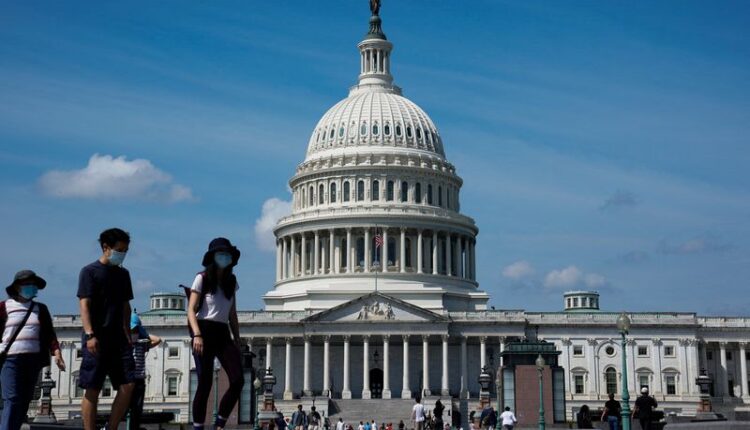U.S. bank CEOs grilled by Congress over economy, consumer protections, Russia ties
By Pete Schroeder and Lananh Nguyen
WASHINGTON (Reuters) -The chief executives of JPMorgan, Bank of America (NYSE:BAC), Citigroup (NYSE:C), Wells Fargo (NYSE:WFC) and other major U.S. banks were grilled by both Democratic and Republican lawmakers on Wednesday on the economy, consumer protections, mortgages, and their ties with Russia.
In testimony before the House of Representatives Financial Services Committee, the CEOs touted their financial strength, role in distributing billions of dollars in COVID-19 pandemic-related aid and efforts both to boost lending in poorer communities and diversity within their ranks.
The line-up for the hearing includes CEOs of the four largest U.S. banks: JPMorgan Chase & Co (NYSE:JPM)’s Jamie Dimon, Wells Fargo’s Charles Scharf, Bank of America’s Brian Moynihan and Citigroup’s Jane Fraser. They are set to be joined by US Bancorp (NYSE:USB) CEO Andy Cecere, PNC Financial (NYSE:PNC) CEO William Demchak and Truist’s Bill Rogers (NYSE:ROG), who run the country’s largest regional lenders.
While such hearings rarely result in legislative action, they are still risky for the CEOs, who were forced to defend their banks on a number of fronts at a time when lawmakers are looking to boost their profiles ahead of November elections in which control of Congress is at stake.
Republicans and Democrats alike pressed the CEOs on the impact of U.S. Federal Reserve interest rates — aimed at taming soaring inflation — on the economy and banks’ customers.
As interest rates rise, Fraser said she expected people with lower credit scores to experience greater financial stress. Savings rates will probably decline, she added.
“We’re going to be in for tougher times ahead,” Fraser said.
Dimon said consumers continued to be in “rather good shape,” but there is a chance of a mild recession which could be worse depending on the course of Russia’s war in the Ukraine, which has created uncertainty over global energy and food supplies.
California representative Brad Sherman also pressed Dimon and Fraser about the banks’ ties to Russia, sparking a brief, contentious exchange in which Dimon – known for his blunt and forthright style – attempted to interject while Sherman was speaking.
Democrats also pressed executives on fees, the closure of bank branches in poorer areas and the implications of several larger mergers in recent years.
“Over the past several years, we’ve seen the system of banking in this country dramatically shift. Our nation’s largest banks have gotten even bigger,” said Representative Maxine Waters (NYSE:WAT), who chairs the panel. “It’s past time we get to the bottom of who these mergers actually benefit.”
The executives also are facing heightened criticism from Republicans, who have grown frustrated with what they see as Wall Street’s increasingly liberal leanings on environment and social issues. Some large banks have adopted policies that some Republicans say amount to boycotts of certain industries such as fossil fuels and firearms. Banks dispute that characterization.
Rep. Patrick McHenry, the top panel Republican, kicked off the hearing by chastising banks for considering such stances.
“We’re going to hear Democrats encourage banks to make lending decisions based off ‘woke’ politics rather than credit worthiness,” he said.

